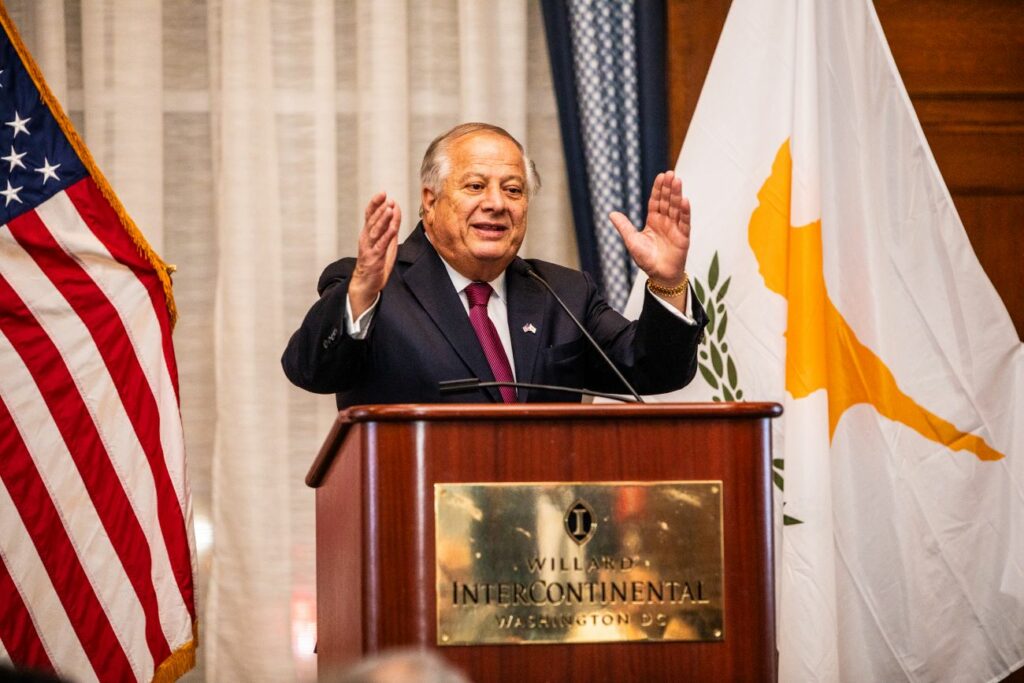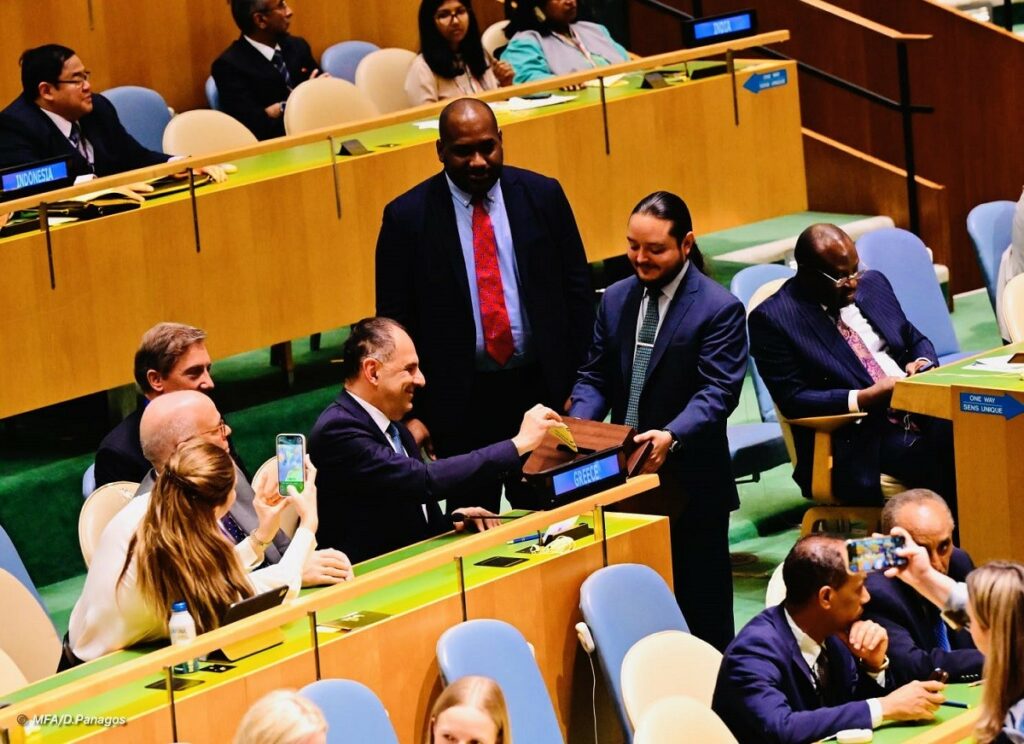
The Public Debate on Cyprus Needs More Accurate Information
By Endy Zemenides
The last year was not one particularly full of good news in the eastern Mediterranean. The rise of ISIS, the economic crisis in Greece, the humanitarian catastrophe that is the refugee crisis, and political instability in Turkey are just few of the issues that make the region volatile.
With this as a backdrop, the current enthusiasm for the Cyprus reunification talks is understandable. Even while violence dominates the region, shooting has yet to break out in the country. The President of the Republic of Cyprus has been bold in the pursuit of reunification. Greek and Turkish Cypriots alike seem as committed as ever (with Turkish Cypriots selecting a community leader that has a positive history with Greek Cypriots). New players at the U.N., the United States Embassy, and both the National Security Council and the State Department have replaced predecessors who were considered obstacles to progress.
Being optimistic is one thing; being overly enthusiastic is another. A historic opportunity to reunify Cyprus may indeed be upon us, but if the spotlight put on the Cyprus negotiations is not accompanied by full and accurate information and an appreciation of the nuances of the Cyprus problem, we will miss the chance to end the second longest standing issue before the U.N. Security Council.
Important actors in global affairs – especially in here in the U.S. – are paying attention to Cyprus for the first time in a long time (if not the first time ever). This is why it is important for analyses like Markos Kounalakis’ “U.N., underwater gas reserves help solve Cyprus split” in last weekend’s Sacramento Bee to be on the money. Kounalakis is an esteemed journalist and author, influences important players at the Hoover Institution and has analyzed most of the world’s most pressing issues. In the case of Cyprus, however, his 600 words don’t do justice to both the opportunity and risks present in Cyprus.
Kounalakis’ central point – that the United Nations has engaged in a peace process that may bear fruit sometime soon – is certainly valid. It seems that his intention was to do a bit of cheerleading piece for the U.N., and this cheerleading is by no means justified. The U.N. may have been the primary interlocutor in Cyprus since its invasion and occupation by Turkey 41 years ago, but the promise that Kounalakis identifies in the present negotiations was achieved independent of – and in some ways in spite of – the U.N. For the past decade, the U.N. has struggled to reestablish itself as an “honest broker” in Cyprus, a status that diminished because of the U.N. Secretariat’s role in the defeated and discredited Annan Plan to reunify Cyprus in 2004. Kounalakis refers to the efforts of the U.N. Special Advisor on Cyprus, Espen Bart Eide, without noting that President Anastasiades kicked off the reunification process before Eide was in place. In fact, Eide’s predecessor – former Australian Foreign Minister Alexander Downer – was a train wreck, was left out of the joint communique that kicked off the latest round of negotiations, and was replaced in February of 2014. The U.N. played a marginal role in kicking off the latest round of negotiations, and by the time Eide took up his position, Turkey decided to blow up the negotiations by making claims on the Exclusive Economic Zone (EEZ) of the Republic of Cyprus and sending ships (including naval vessels) into Cyprus’ EEZ. The U.N. did not acquit itself well in defusing this crisis. The U.N. ended up (a) relying on quiet diplomacy by the U.S., and (b) lucking into Mustafa Akinci replacing Dervis Eroglu. That is why the talks are back on.
There are at least a few more instances where the piece may give readers a mistaken impression of what is going on in Cyprus.
1. Kounalakis states that Cyprus “has been a bifurcated state with a poor Turkish Cypriot north and a surviving and relatively thriving Greek Cypriot south.”
This is an incomplete statement that may give the impression that there are two recognized states on Cyprus. The U.N. and the E.U. and every other international organization Cyprus is a member of recognize it as a SINGLE state, with not only a single internationally recognized government, but with that government having jurisdiction over the island as a whole.
The more accurate description would have been that Cyprus has been divided into the government-controlled and relatively thriving south – which is predominately Greek-Cypriot – and the poorer, Turkish occupied and Turkish-Cypriot administered northern 37% of the island.
2. Discussing the role of the U.N., Kounalakis states that Mr. Eide has found “serious and popular partners for peace in Greek-Cypriot President Nicos Anastasiades and Turkish-Cypriot President Mustafa Akıncı”
President Anastasiades is the President of the Republic of Cyprus, not the Greek-Cypriot President. It is Ankara that labels him in this way, trying to discredit the international legitimacy of the Republic of Cyprus. Moreover, calling Akinci the Turkish-Cypriot “President” (when combined with that statement discussed above) reinforces any mistaken impression that there are two legal entities on Cyprus. Since this piece focuses on the role the U.N. is playing, it is worth noting that the U.N. never calls Akinci (or any of his predecessors) “President” but the Turkish-Cypriot Community Leader (a position adhered to by the U.S. government, the EU, and everyone other than Turkey).
3. Kounalakis argues that “Past agreements have been hindered or undermined by big brother nations Greece and Turkey.”
This is clearly the case when it comes to Ankara, but it is a mistake to equate Greece with Turkey in the case of Cyprus. It is not Greece that commands tens of thousands of occupation troops, changes the demographics of Cyprus by sending illegal settlers, or insists on guarantor status or rights to intervene in Cypriot politics. Both Greece and Turkey may have the status of “motherlands” in the case of Cyprus, but Turkey stands alone as occupier and colonial rule in the northern part of the island.
4. Finally, Kounalakis asserts that “extraordinarily large energy reserves off the Cypriot coast will remain untapped as long as the north and south remain divided.”
I’m sure Turkey wishes that this was the case in Cyprus, as it would be able to exercise more leverage and achieve what Turkey really wants – Cypriot and Israeli gas to come through Turkey and for Ankara to have undue influence in Cypriot governance.
Developments in the region show something quite the opposite is occurring. Turkey objected to and tried to impede exploration as well, and was quite unsuccessful on this front. Development plans for the Aphrodite gas field are proceeding. With ENI’s massive gas discovery in Egypt’s EEZ, the appetite for further exploration in Cyprus has also increased.
It may be accurate to say that Cyprus will not realize the full potential of its energy reserves without a solution, but these reserves will be tapped soon with or without a solution. Indeed, this fact is what is motivating Turkish-Cypriots and Turkish companies to push for a solution before they are left out of the eastern Mediterranean’s gas bonanza.
The Cyprus reunification process remains the most promising peace process in the world, regardless of the less than stellar contributions by the U.N. and the incomplete/inaccurate public debate surrounding the issue. American and European foreign policy elites will have a chance to contribute to not only the resolution of the Cyprus issue, but in firmly establishing Cyprus as a front line state for the West in a volatile region, and we must ensure that their participation in this effort is accompanied by accurate information.
Endy Zemenides is Executive Director of the Hellenic American Leadership Council (HALC). Follow HALC at www.hellenicleaders.com or on Twitter: @hellenicleaders

